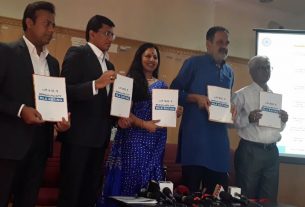Only 414 volunteers in Karnataka for pregnant women under the central government’s maternal healthcare scheme
By Shivani Verma
Bengaluru: While Tejaswani, a 21-year-old conceives for the second time, she waits for the government hospital in her town, Muddebihal, to provide her with basic medical care. Drowning in poverty, she and her family, fret as government authorities fail to respond.
“It’s my 2nd trimester and I am not getting any antenatal care/services under Pradhan Mantri Surakshit Matritva Abhiyan (PMSMA) due to shortage of staff/facilities at a nearby primary healthcare centre (PHC). Sometimes there are no doctorsand if they are, then there won’t be any medicines available. It’s difficult for us to visit different PHCs every time. During my first pregnancy, my husband and I took care of all the expenses,” said Tejaswini.
PMSMA will help to provide quality Antenatal Care ANC and detection, referral, treatment and follow-up of high-risk pregnancies and women having complications.
PMSMA is held on the 9th of every month, wherein all the essential maternal health services will be provided at identified public health facilities as well as accredited private clinics and institutions volunteering for the PMSMA.
Data indicates that Maternal Mortality Ratio (MMR) in India was very high in 1990 with 556 women dying during childbirth per 1 lakh live births as compared to the global MMR of 385/lakh live births. MMR of India has now declined to 167/lakh live births against a global MMR of 216/lakh live births (2015). India has registered an overall decline in MMR of 70 per cent between 1990 and 2015 in comparison to a global decline of 44 percent.
Even though the maternal mortality rate is declining, people still find the need to have more volunteers for better maternal care during their second and third trimester.
With 108 deaths per lakh live births (SRS 2014-16), Karnataka only has 414 volunteer doctors for PMSMA.
The guidelines of PMSMA state that the services will be provided by the Medical Officer and/or an obstetrician-gynaecologist. If trained manpower is not available then services from Private Practitioners on a voluntary basis, are to be arranged.
As per National Health Portal (NHP), there are a total number of 5,921 volunteers registered all over India. Maharashtra tops the list by having 844 volunteers. In terms of the total number of pregnant women who have received antenatal care under PMSMA for 2019, Madhya Pradesh tops the list with providing 51,806 pregnant women with the promised services.
Rajkumar, Deputy Director of Health and Family Welfare Services, Government of Karnataka said, “The number of volunteers for PMSMA is less because we don’t need many volunteers for PMSMA. The maternal mortality rate for Karnataka has dipped to around 108 deaths per 1 lakh live births.”
“We have other State Government schemes for women healthcare in which we make sure the pregnant women get good antenatal care and services during their 2nd-3rd trimester. Once that is done properly, why would we need extra volunteers for the services. We don’t need them. Other states need more volunteers because the number of Maternal deaths are more in those states. We don’t have many. Karnataka stands in the first position in MMR,” he added.
Even after considerable progress in the reduction of maternal and infant mortality, every year approximately 44000 women still in India die due to pregnancy-related causes and approximately 6.6 lakh infants die within the first 28 days of life.
Many of these deaths are preventable and many lives can be saved if quality care is provided to pregnant women during their antenatal period and high-risk factors such as severe anemia, pregnancy-induced hypertension, etc are detected on time and treated properly.
The PMSMA guidelines state that the public health facilities need to be implemented in PHCs, urban dispensaries, community health centers, Urban Health Posts, rural hospitals, maternity homes, sub-district hospitals, district hospitals, medical college hospitals, private institutions, and clinics to provide the required services. All the private facilities and institutions volunteering to provide the services for the PMSMA should be identified.
Priyaz Mishra, a practitioner at Safdarjung Hospital said, “Having a lower MMR shouldn’t define the number of volunteers one must have for the antenatal care under PMSMA. As basic health checkups during pregnancy are essential, state governments should work upon this and as one said once – the more, the better. They should enhance the quality and number of doctors.”








